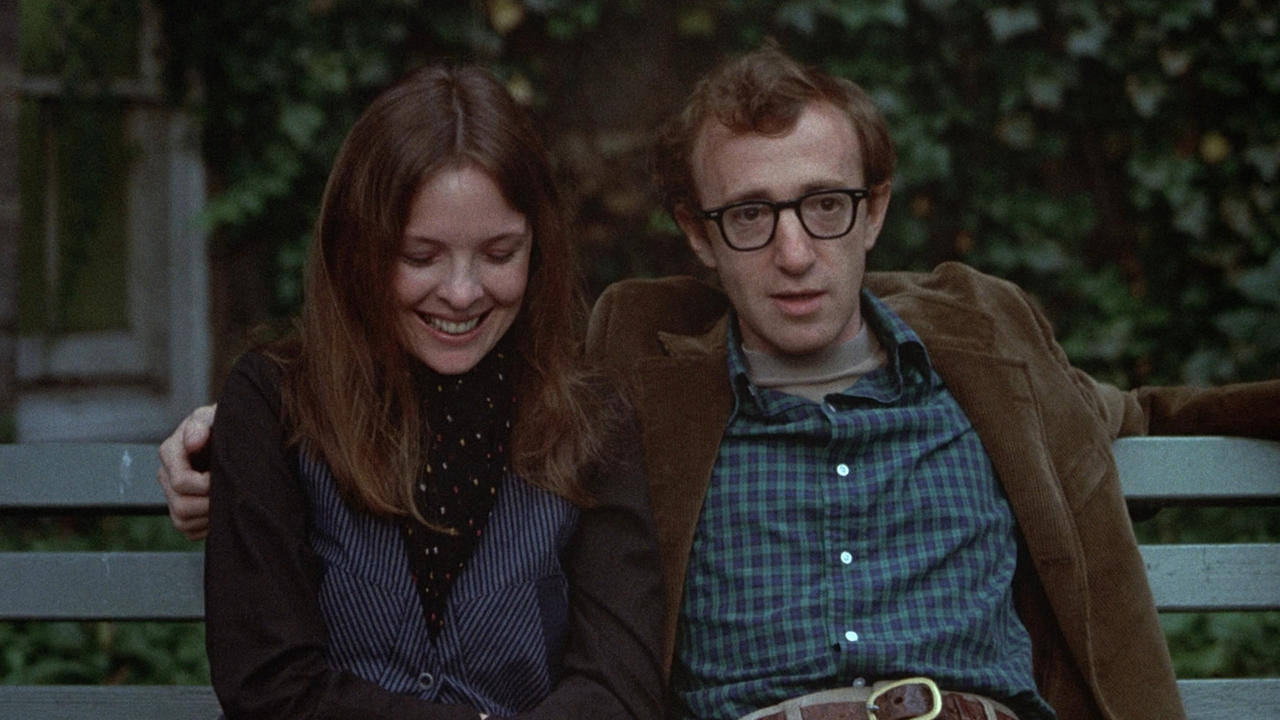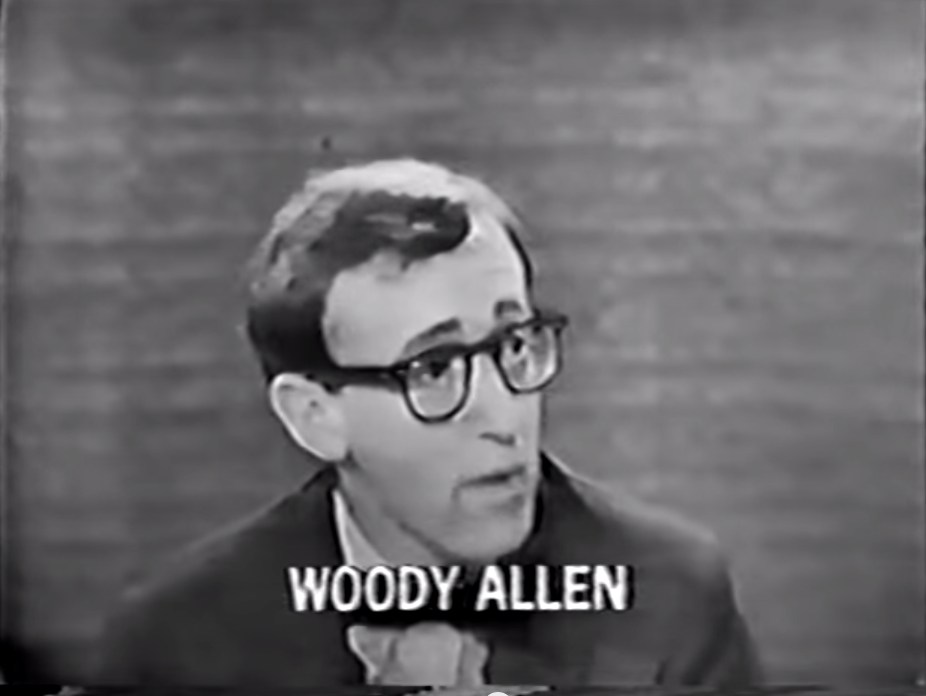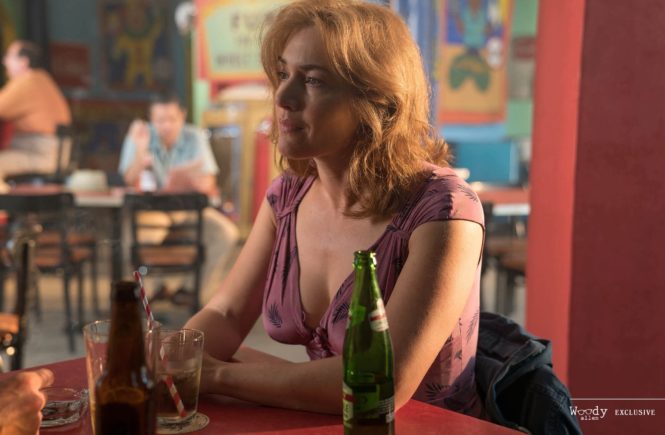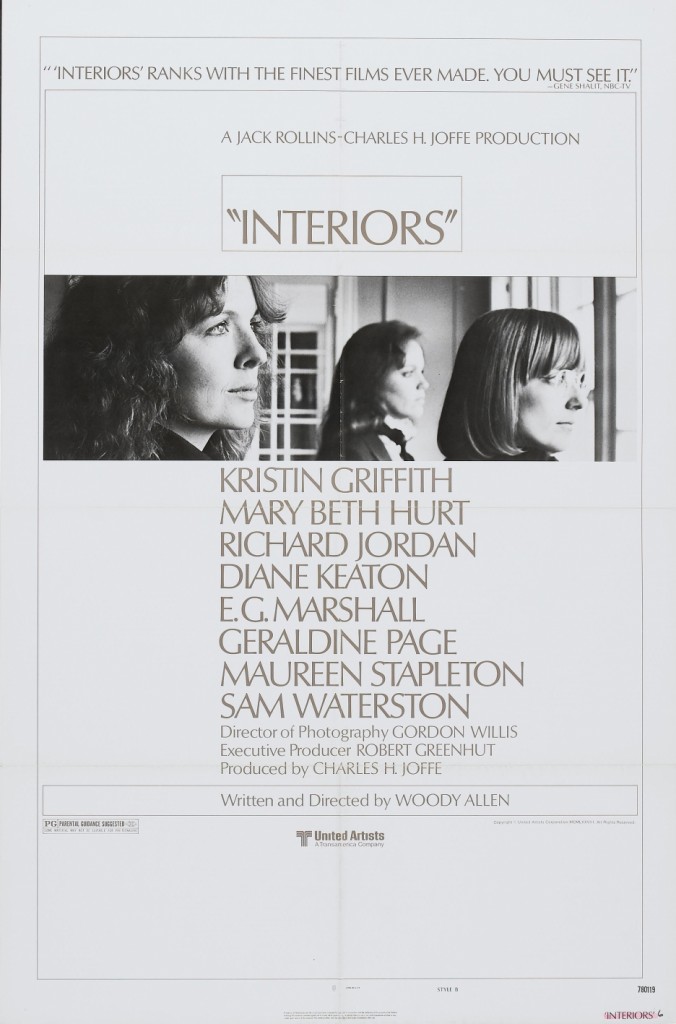
Interiors is Woody Allen’s first serious work – a quiet drama about a family. It’s not only his first dramatic film – it’s his first dramatic ANYTHING. Years of stand up, playwriting, acting and writing comic short stories was put aside for 100 minutes. Allen has said that when he was young he realised he could always rely on being to write a funny line for a living. Not in a bad way- but there is nothing funny about ‘Interiors‘.
But it’s a fascinating film. And with many more dramas under his belt, the years have kind. We can see with hindsight the unpolished jewel this film is. Annie Hall allowed Allen to go beyond the cartoonish characters of his early films. ‘Interiors‘ takes it one step further.
It is the first Allen film where Allen doesn’t appear. Diane Keaton, Mary Beth Hurt and Kristin Griffith play three sisters who barely get along. Their parents (E.G. Marshall and Geraldine Page) have recently separated, leaving the daughters to deal with their family, their partners, their ambitions and their lives.
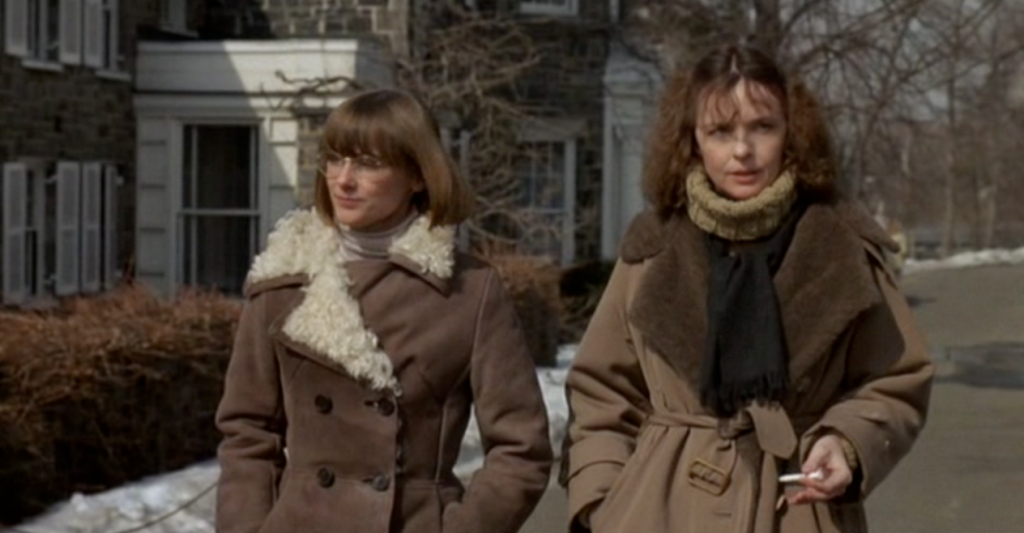
This film falls between two of Allen’s greatest works – ‘Annie Hall‘ and Manhattan. Compared to those two films, ‘Interiors‘ feels slight. It’s slow – and deliberately so. It keeps that slow pace for the entire film. The creative flair of the director of Everything You Always Wanted To Know About Sex… is not present at all. The performances are restrained, and even the sets are simple and undressed. Plot-wise, not much goes on.
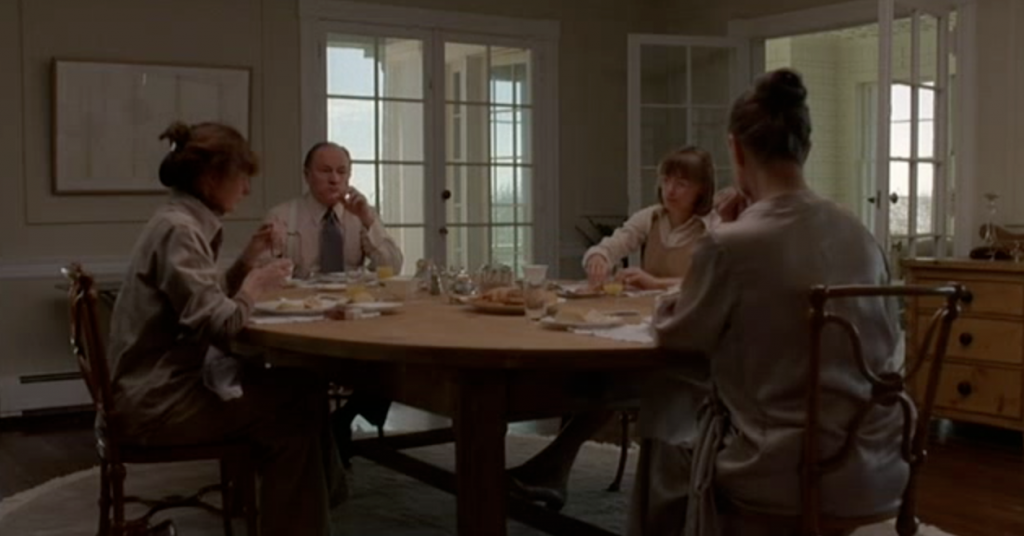
‘Interiors‘ feels like a play. The story is told in a small number of sets, and the heart of the film comes from the acting. Keaton shines as Renata, who carries her pain of rejection so openly she doesn’t see herself as lashing out. Hurt is also great as the realist Joey. Apart from Keaton, all the actors were new to Allen.
But it is an uneven film. Allen’s always talked about how his films always starts off as larger ideas, and it feels like many of the characters here get short changed. What exactly is the point of Griffth’s Flyn? She arrives twice and goes nowhere. In fact, some very simple story-telling crimes are committed. The characters go from A to A. And there is no-one for us, the audience to cling on. Are we following Joey’s journey? Or Eve’s?
(Joey, in her glasses, look and neurosis, could be the very first Woody Allen ‘surrogate”)
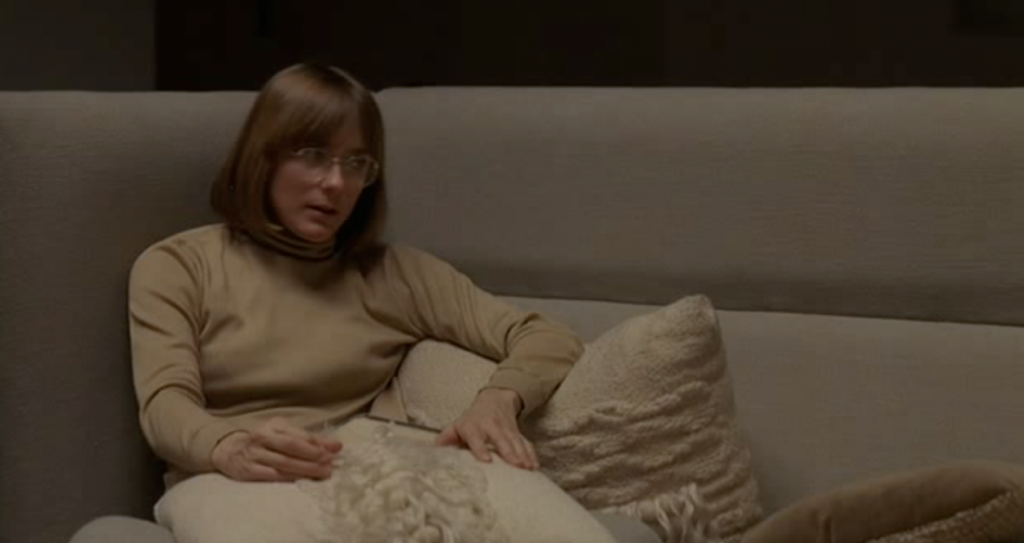
But who said we had to stick to convention anyway? And in the decades that’s followed, unlikable and flawed characters have become the norm. The work of Wes Anderson and Whit Stillman (two Allen acolytes) are filled with them. And this current golden age of television are full of them too (Breaking Bad, Game Of Thrones, Sopranos and more). There is a whole sub-genre of these realist, talking dramas that have been dubbed ‘mumblecore’.
But let’s not forget what is there. This is the height of Allen’s Ingmar Bergman obsession. The dark themes, of life, memory and death are explored. Allen sets up a premise, and slowly tears it apart. The civilised break-up of the family is later revealed to be a farce. The end of the film could well be the darkest moment in all of his 40+ films. It’s not a dramatic, cinematic murder. It’s a raw, realistic and emotional suicide. Then there’s Maureen Stapleton‘s lovely, uninhibited dance. The best moment in the film.
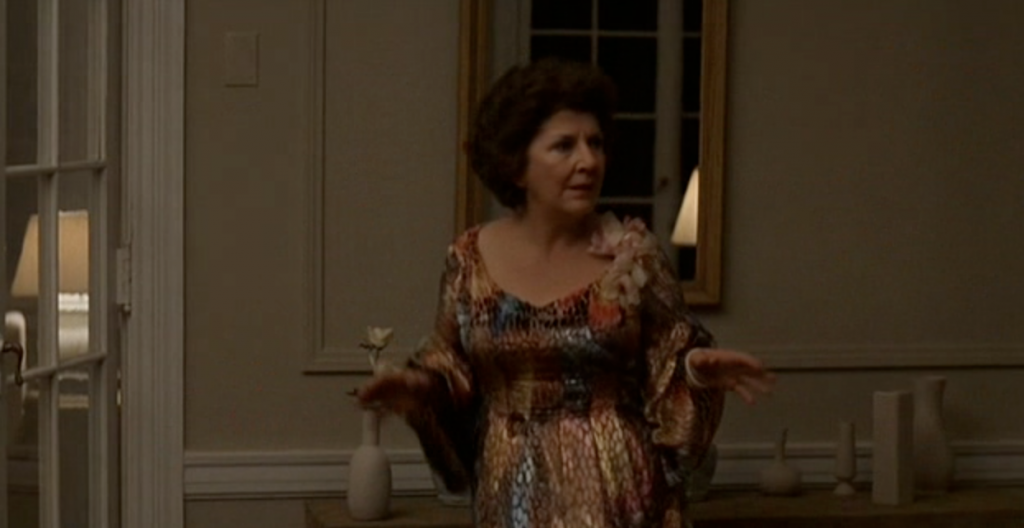
Was it all for show? What made Allen make a film about divorce and suicide? The style could be a simple exploration. But why this dark story and where did it come from? Allen, legendarily guarded, has never said and we might never know.
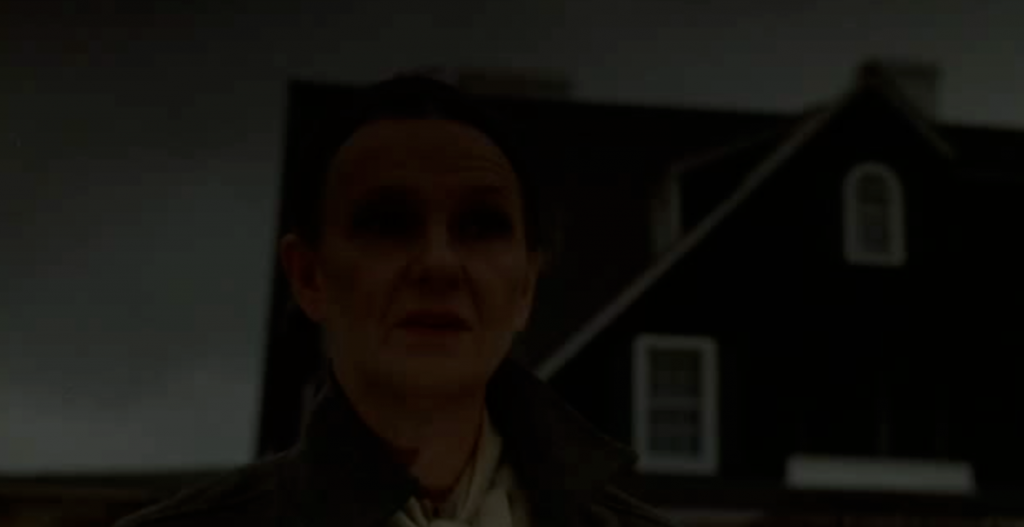
It’s not a perfect film. And it’s hampered by Allen’s reputation. We will see Allen return to various themes here but better (in particular, Hannah And Her Sisters). Allen would refine his drama chops over time. It’s a fascinating new step, and showed that Allen was not afraid to follow his muse wherever she might lead him.
Cast: Geraldine Page, Diane Keaton, Mary Beth Hurt, Kristin Griffith, Richard Jordan, E. G. Marshall, Maureen Stapleton, Sam Waterston

